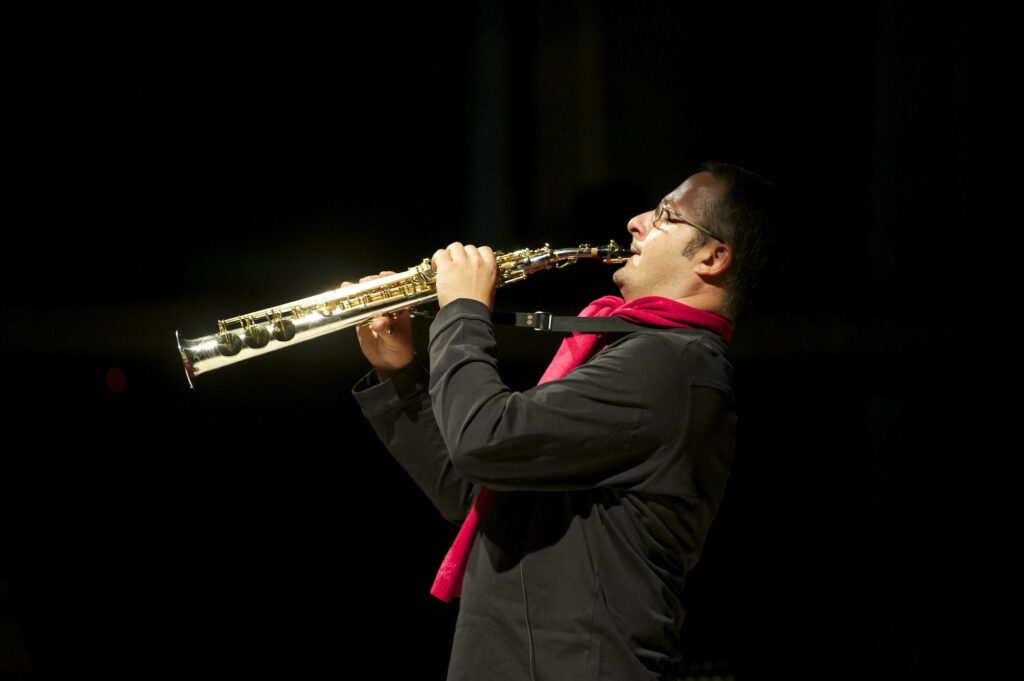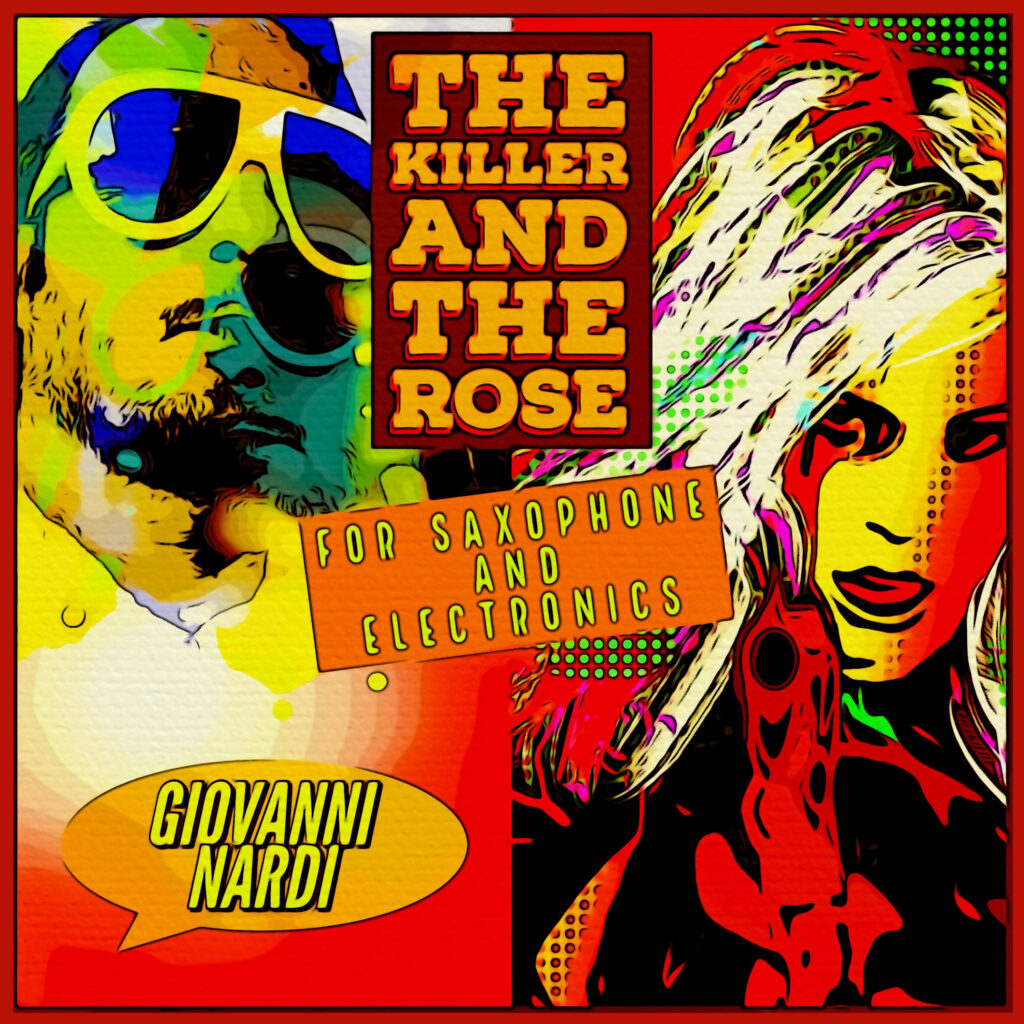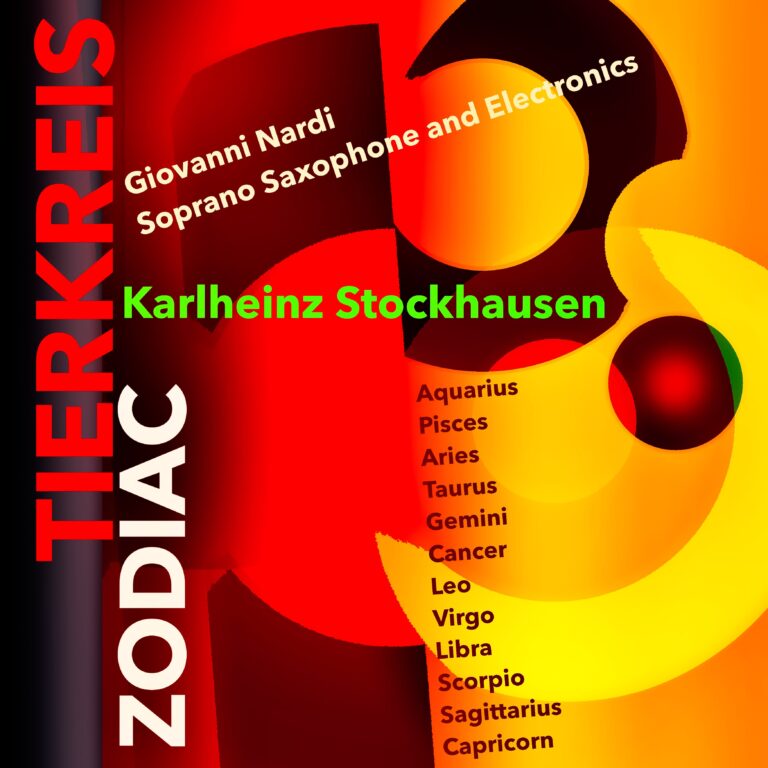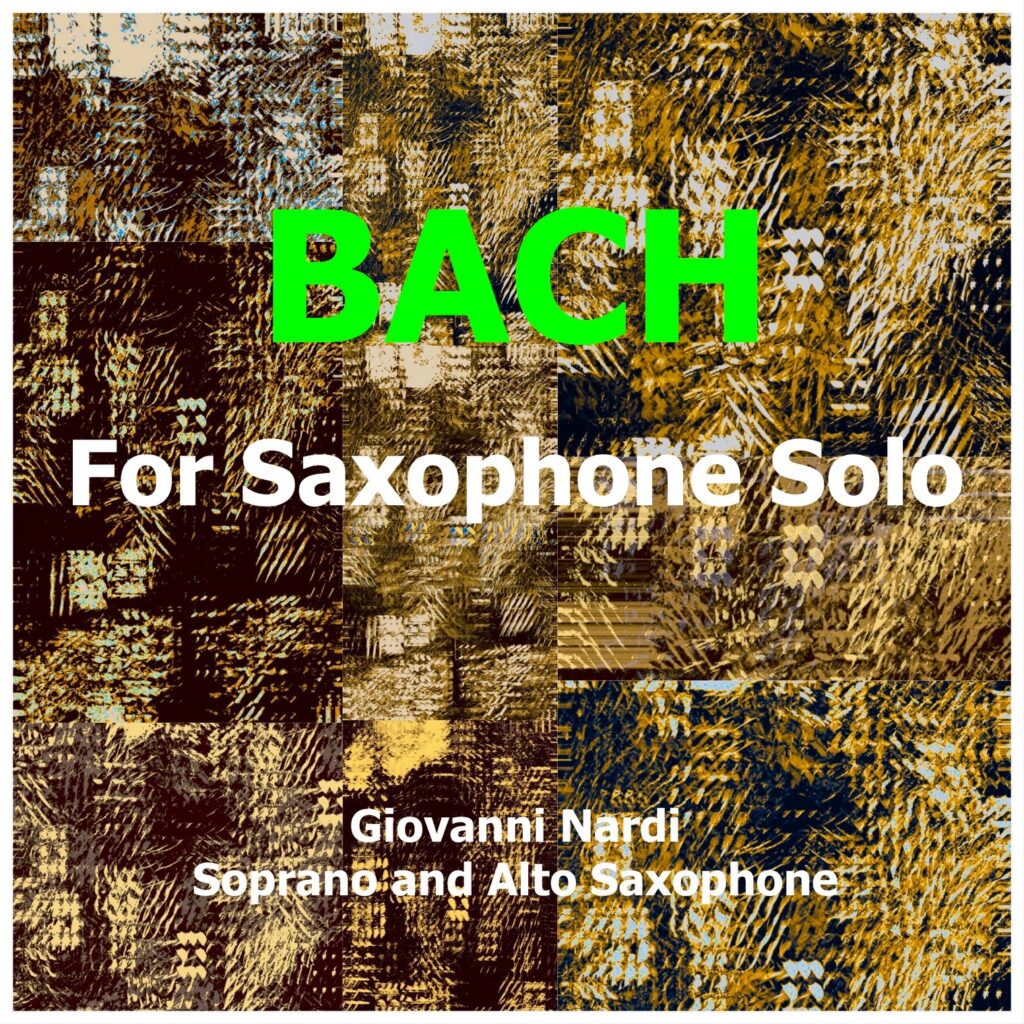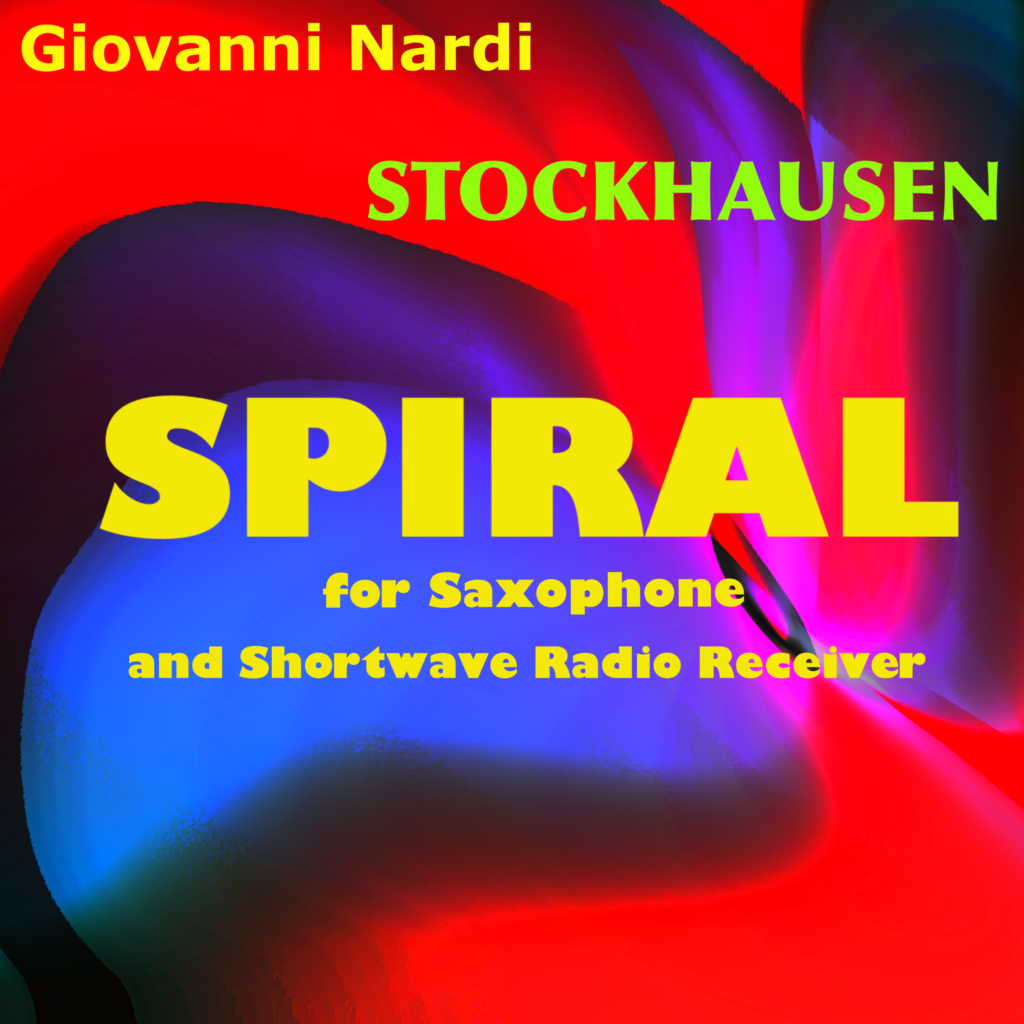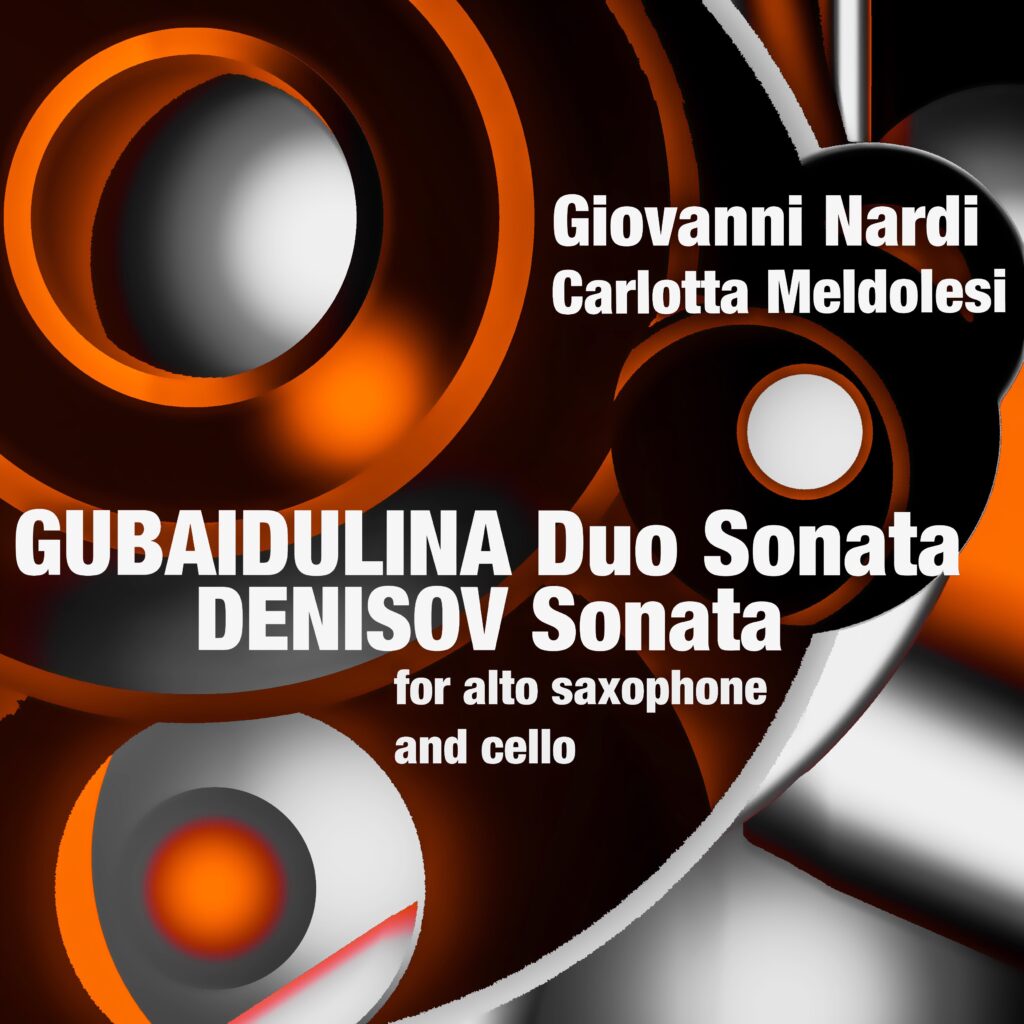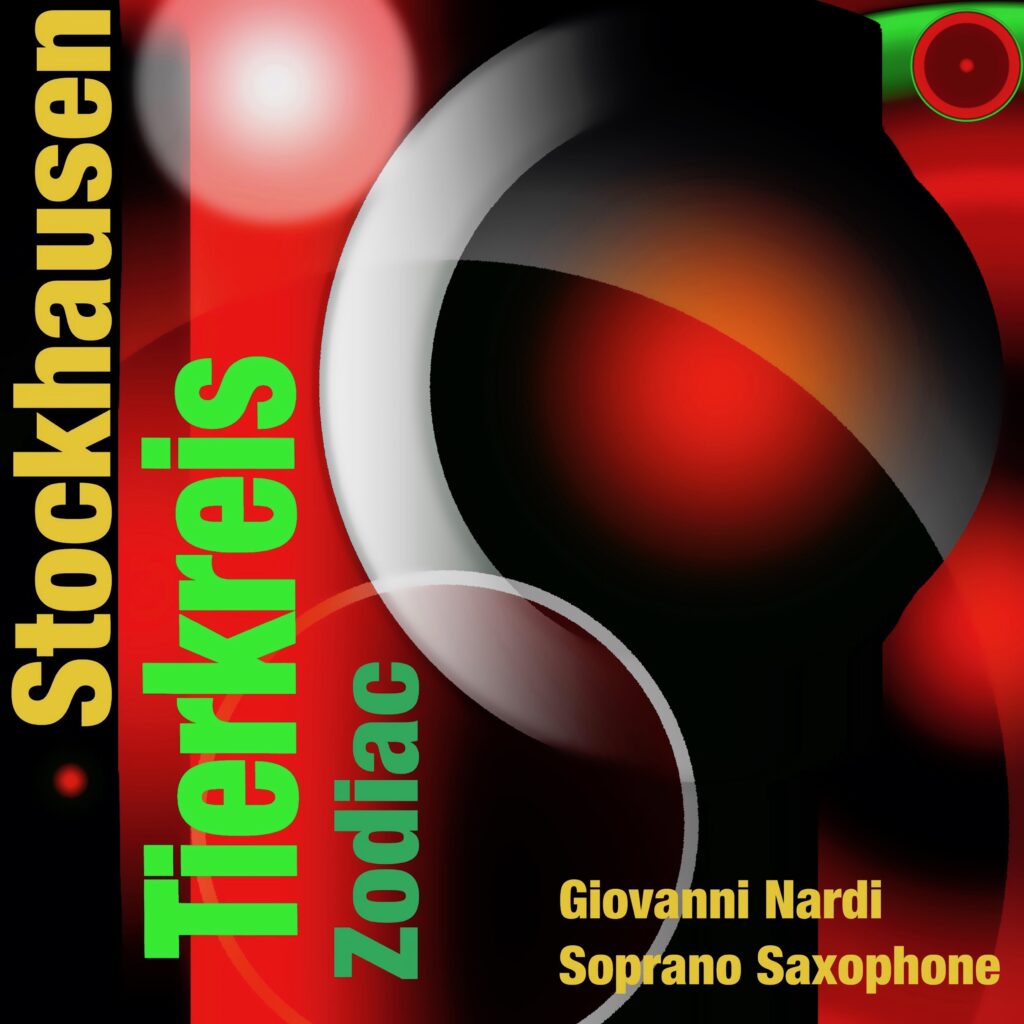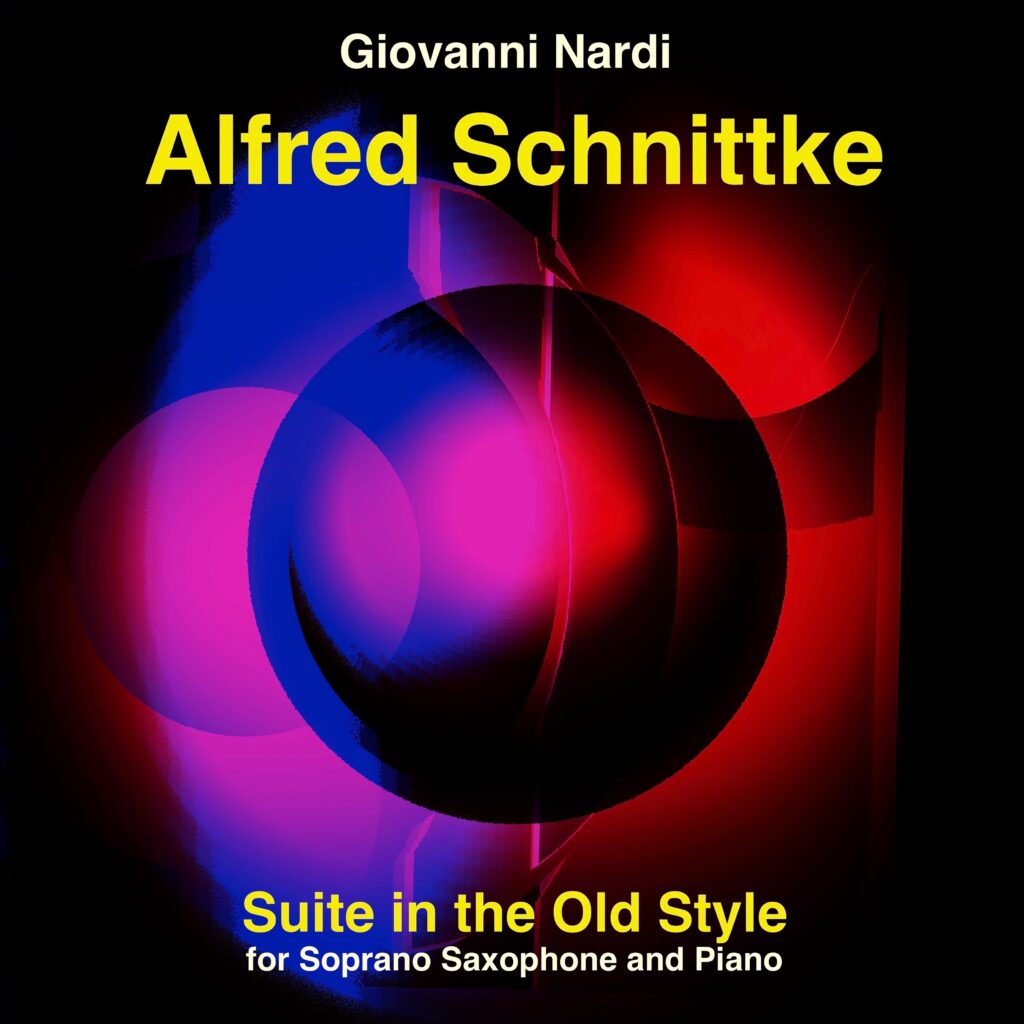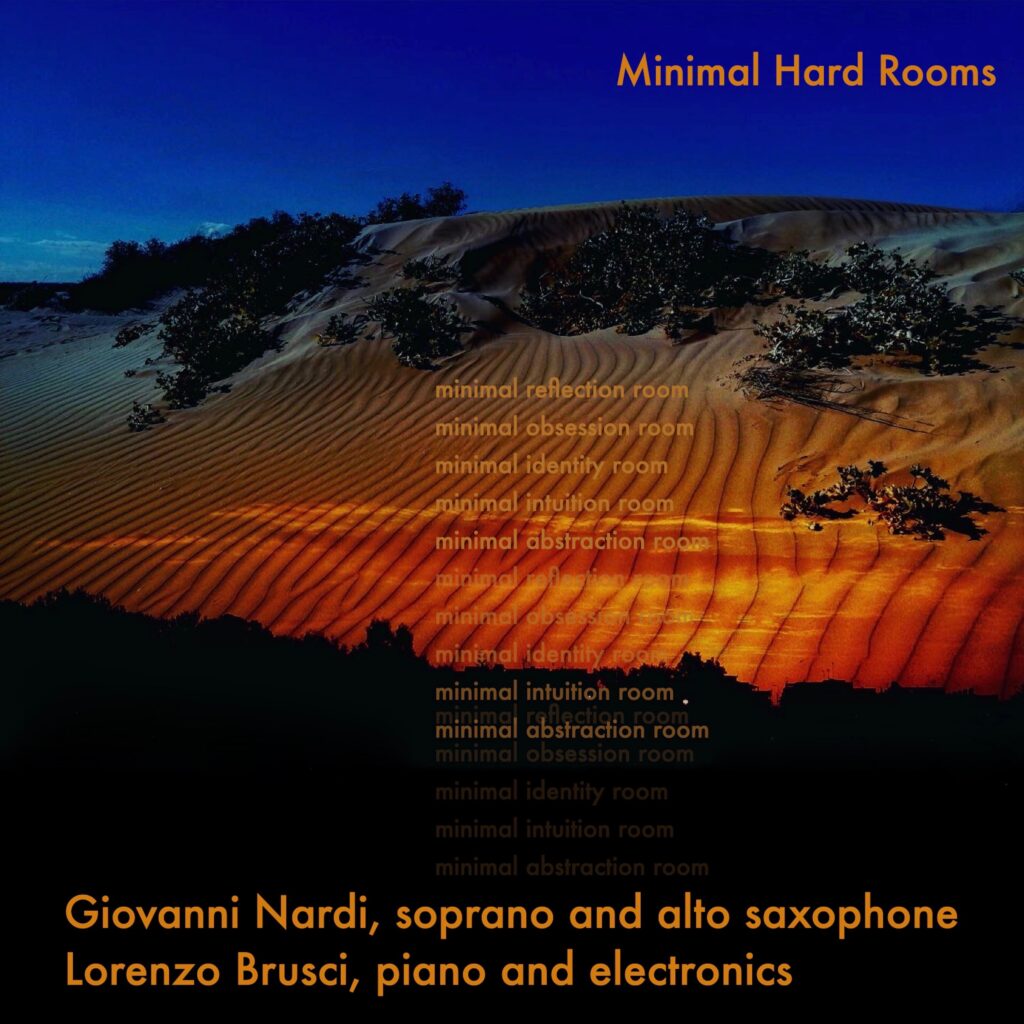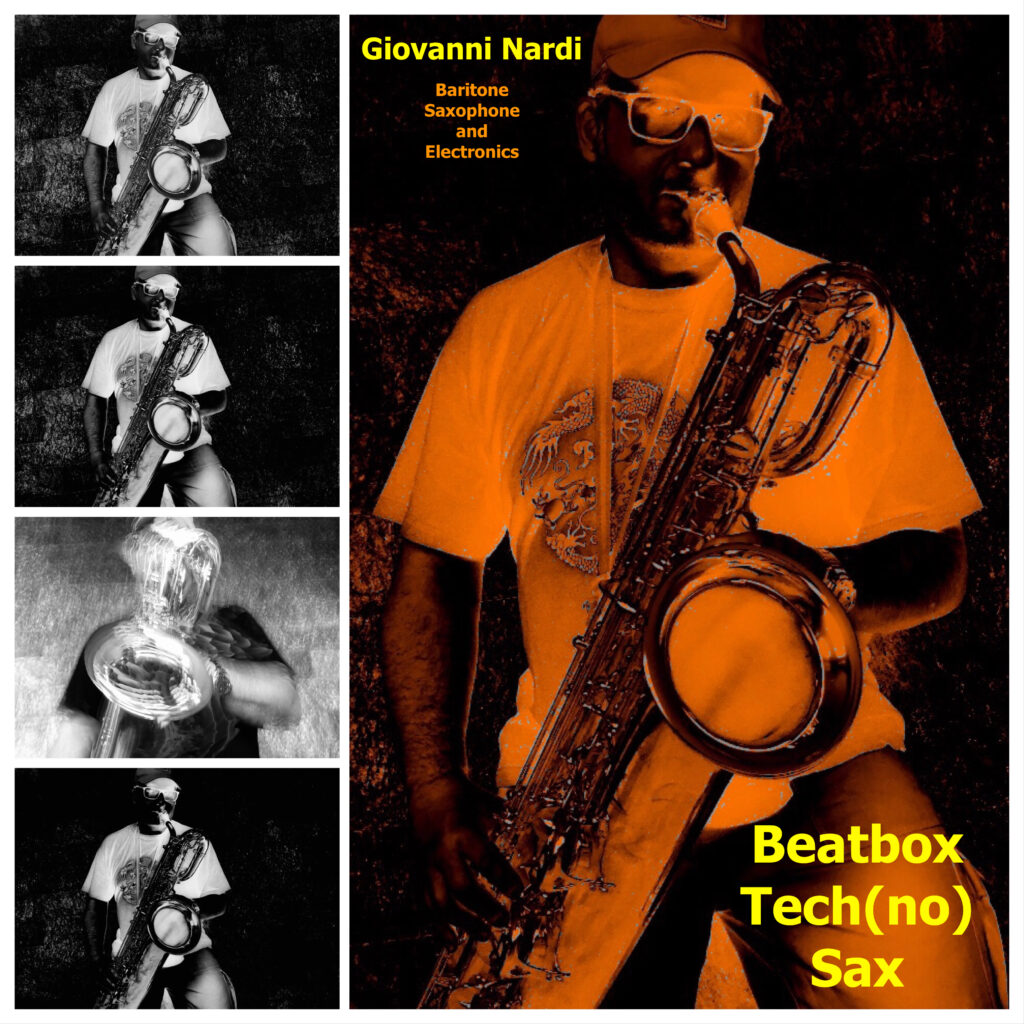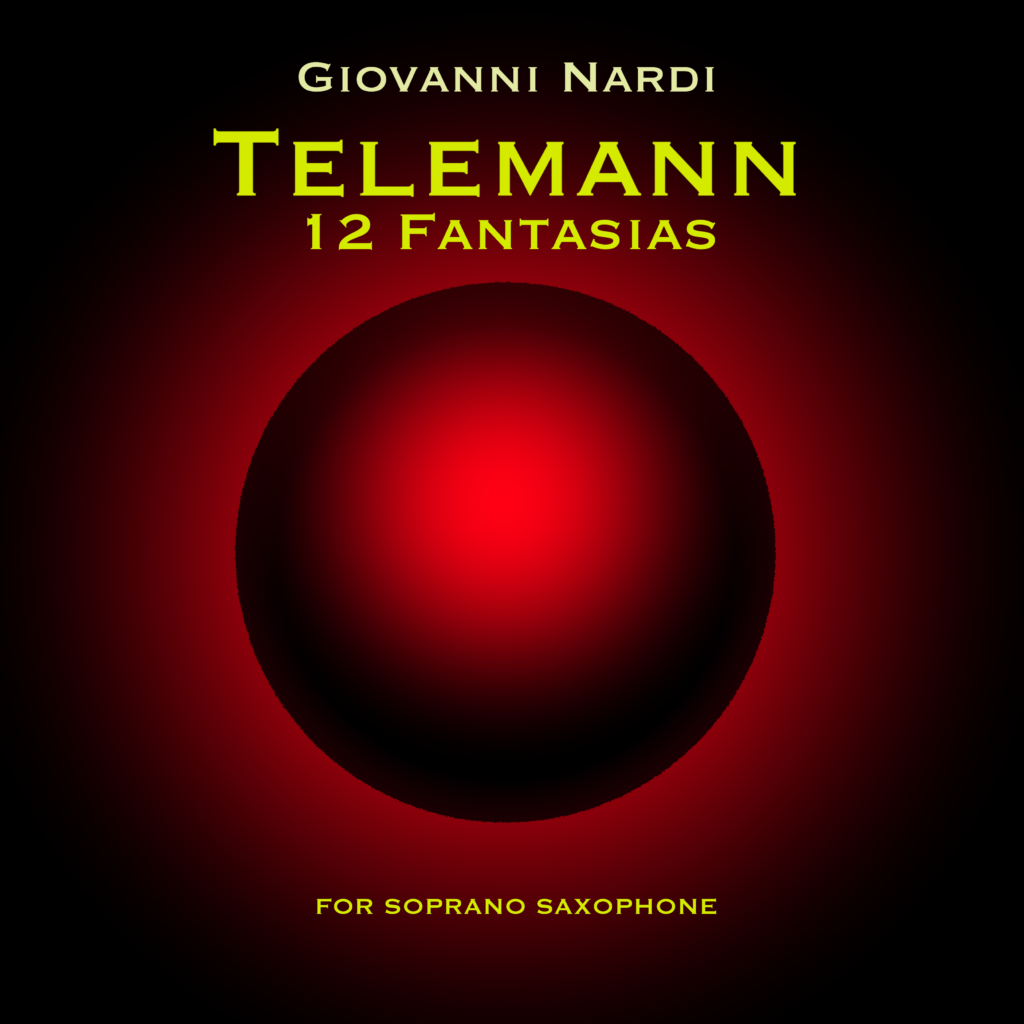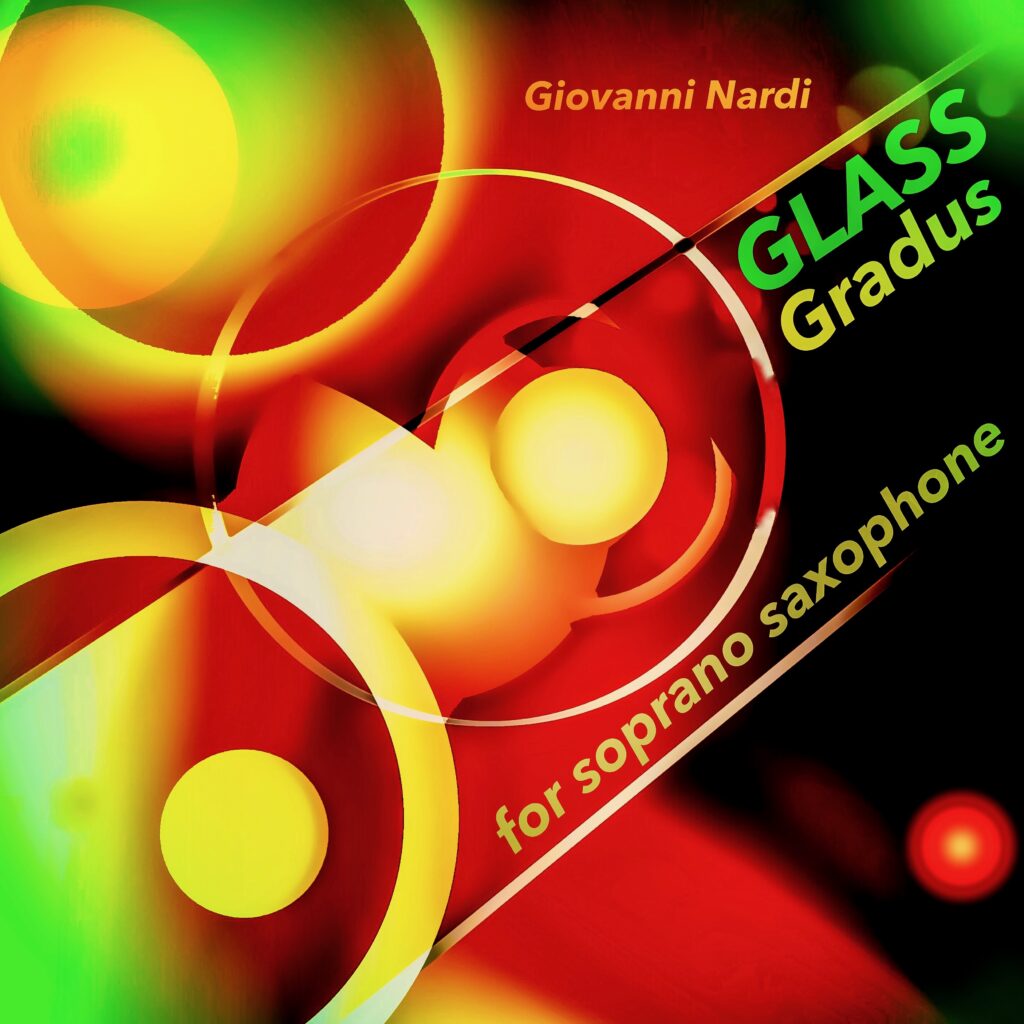G. Nardi "The Killer and the Rose" for Sax and Electronics
For several years I had been planning to make an album in the style of John Zorn’s projects dedicated to Spillane and Godard. The album is dedicated to Hard Boiled literature and the cinema derived from it, the Hard Boiled genre was published and closely connected with Pulp Magazines, subsequently the Hard Boiled novels were published by publishing houses in paperback editions, commonly known as Pulps; consequently the term Pulp Fiction is often used as a synonym for Hard Boiled. Particularly inspired by the figures of Mickey Spillane and Quentin Tarantino, but at difference of Zorn’ s albums, inspired rather than by the figures themselves at their artistic language applied to music. Cultured and ironic quotes. In elegant formal packaging, a reinterpretation of elements of different genres replicated and incorporated in a new form. In this case, quotes of elements of contemporary classical, Hip Pop, Techno, Jazz, Dubstep, Cartoon music, Film noir music. Always keeping in mind the characteristics of the genre, which differs from the deductive detective story for the realistic representation of crime, violence and sex. The album is a unique narrative composition composed of the following “chapters”: 1. The Great and Glourious Bastard 2. Immoral Solo 3. This Story is not a Cartoon 4. Pulp Tango 5. Metamorphosis is not for Everyone 6. Hard Boiled Dream 7. Once Upon a Time a Queen my little Readers 8. Face to Face for the Rose and the Bad 9. Sorry my Darling but I’m the Killer. The titles are blatantly in the Tarantino / Spillane style, one even recalls a certain Italian, or better Tuscan book born from magazines!! A note about the cover artwork, is in Pulp Magazine style (modernized, designed by me), also with imitation of paper. I would also not forget the tribute for Roy Lichtenstein who had masterfully incorporated comics into his painting. Finally I would like to say that the genesis of these compositions owes a lot to the work done with Spiral by Stockhausen, and paradoxically it was the only possible album after the recording of the integral version. It also owes a lot to the conversations I had with Ennio Morricone regarding the importance and the little known working method that the path he had made with the “Gruppo di improvvisazione di Nuova Consonanza” had for him. All improvisations are recorded in a single take without cuts or montages.
K. Stockhausen "Tierkreis" for Saxophone and Electronics
This version of Tierkreis is in the sax part the same as the one made for solo saxophone, but I felt that the melodies had some implicit characteristics that could generate “other”. While maintaining the previous choice of purity in the sax part, I have programmed chains of electronic effects that enhance even more the melodic characteristics, in an often unpredictable way, also touching sound universes of different musical genres, which the melodies had within them.
J.S. Bach "Cello Suite 3"
J.S. Bach "Partita in A Minor" for Saxophone Solo
“Virtuosity often arises from a conflict, from a tension between the musical idea and the instrument, between the material and the musical material […] The virtuoso of today, worthy of the name, is a musician who – like any modern studious , in every field of Research – has the need and the ability to move in a broad historical perspective, interpreting the experience of the Past, as that of the immediate Present […] and who is capable of resolving the tensions between creativity of yesterday and today […] He also sees in his instrument a means of research, not just for pleasure… “
Luciano Berio
K. Stockhausen "Spiral" (Integral) for Saxophone and Electronics
This is the only integral version recorded in over 50 years, only one other integral version, for voice, has been recorded, edited by Stockhausen himself. I recorded in a one take, without cuts or montage, the short waves are real, received from the web on the desktop computer and controlled with an iPad and other devices. Spiral (1968) during EXPO 1970 in Osaka (Japan), was interpreted more than 1300 times, in a special spherical auditorium designed by the architect Bornemann, following the advise of Stockhausen, and built by Siemens. The sound was spread from all directions through over 50 loudspeakers. I myself made a live version with a large spatialization made by the Centro “Tempo Reale” in Florence. Spiral forces the limits of the classical interpreter by creating the conditions for its evolutions, symbolized by the spiral itself. Spiral is not just a composition, it is a novel by a man (soloist), who through the tables of the law (score), faces the event (short waves that come from every area of the space like a collective human spirit) and reacts, forced each time to evolve beyound their abilities. Spiral is a philosophical treatise carved in sound.
S. Gubaidulina "Duo Sonata"
E. Denisov "Sonata"
for alto Saxophone and Cello
Gubaidulina’s Duo-Sonata was born from the need to expand the repertoire for sax and cello. After long refinements I agreed with Gubaidulina this version now published by his publisher SIKORSKI. With Denisov’s ultra-virtuosic sonata, the musical and sonic possibilities of the sax-cello duo are explored to the extreme. Two of the most beautiful chamber music pieces in the saxophone repertoire, capable of competing with the great repertoire of the more “classic” instruments. The sequence of multiphonics of the piece by Gubaidulina is constructed not in an effectistic way, but it was my desire to bring the sax to the comparison of stringed instruments in the ability to play harmonic sequences with chords
K. Stockhausen "Tierkreis" for Soprano Saxophone Solo
I had previously made a version of Tierkreis for solo saxophone, elaborating it as a radical avant-garde piece, with effects of all kinds, slap, multiple sounds, anf other. This version was born later for a concert at the Accademia Chigiana in Siena, where I played the Tierkreis in a 1200s Gothic abbey, together with pieces by Morales, Josquin, Pierre de La Rue and Perotinus, soloist with the choir. This context meant that I reworked this new version, extremely idiomatic for soprano sax solo, where the purest and most spiritual character of Stockhausen’s melodies is enhanced. The elaborations reflect the character of each zodiac sign. Only one multiple sound, is present, in Taurus, indicating my zodiac sign.
A. Schnittke "Suite in the Old Style" for Saxophone and Piano
I had listened to compositions by Schnittke, Gubaidulina and Part during my period of study in Salzburg in the early 90s, when they were not performed much in Europe yet, and I was very impressed. I had the desire to have their compositions in the repertoire. The Suite together with the piece by Gubaidulina and a piece by Part complete this operation. This is a transcript of mine authorized by the publisher. The Suite is made up of excerpts from soundtracks written by Schnittke for the cinema. The movements, are taken from a film “The adventures of a dentist” (Klimov, 1965) a soviet dark comedy / drama, from a children ‘s animation film and from a film / documentary “Sport, sport, sport” (Klimov, 1970). Aware of the fact that I was dealing in all respects with a re-adaptation of soundtracks for orchestra, I found myself thinking how I would have liked the piece, thinking like a film director and not as a musician. I wanted a piano that was extremely analytical and at the same time with an ironic sound, absolutely not romantic, that would work without a pedal and that surrounded the sound of the sax. Imagining black and white films.
G. Nardi / L. Brusci "Minimal Hard Rooms" for Saxophone, Piano and Electronics
I collaborated with Brusci in concerts and various albums, where we explored numerous musical contexts. On this album, we did some further exploration. Brusci composed the part of the piano. For the rhythmic part, composing assisted by an AI instrument, of which he personally followed the design. On these unpredictable piano / electronic compositions I tackled the improvisations using different styles for each, such as listener’s “detritus of memory” by John Zorn, Jan Garbarek, John Surman and David Sanborn (Lethal Weapons soundtrack!!). All improvisations are in one take, without cut or montages.
G. Nardi "Beatbox Tech(no) Sax" for Saxophone and Electronics
This “experimental” composition was born as a kind of exercise to explore and reread the sounds of the Baritone Sax in an unusual context, which could be defined as “close” to IDM or Minimal Techno. All the sounds of the composition are in fact sounds derived from the Baritone Sax. Various types of slap, key sound, noises of the mechanical parts, voice in the instrument, reed sound with extremely close microphone pick-up, breath etc ….. treated as a sort of “objet trouvè” or “ready made” and electronically processed as little as possible so that they were recognizable. Then reassembled with a drum machine.
G.P Telemann "12 Fantasias" for Soprano Saxophone solo
After recording the Tierkreis cycle, I felt the need to tackle a compositional cycle from the past (same 12 tracks) and the choice went to Telemann’s Fantasies for solo flute.
The problem arose of how to make a version of it, given the countless versions already recorded and the fact that the saxophone was not “entirely” a philological instrument. Problem that I had not posed with the Bach recording because he is more commonly “used” in a modernist way. I therefore decided to “use” the 12 Fantasies as a solitary meditation, distant in space and time, to signify a past that cannot be reconstructed. A bit like the connective tissue used by Berio on “Rendering” for Schubert. I used a more intimate soprano sax than usual in silver and I deliberately made an unpopular and unconventional choice as regards the sound of the recording, bordering on “mono”.
P. Glass "Gradus" for Soprano Saxophone Solo
Recorded in the same session as Telemann, it shares its choices. A more modern solitary meditation, heavily influenced by Indian music. But at the same time capable of evoking implicit polyphonies for solo instrument, as in the tradition of Western music.
Reviews
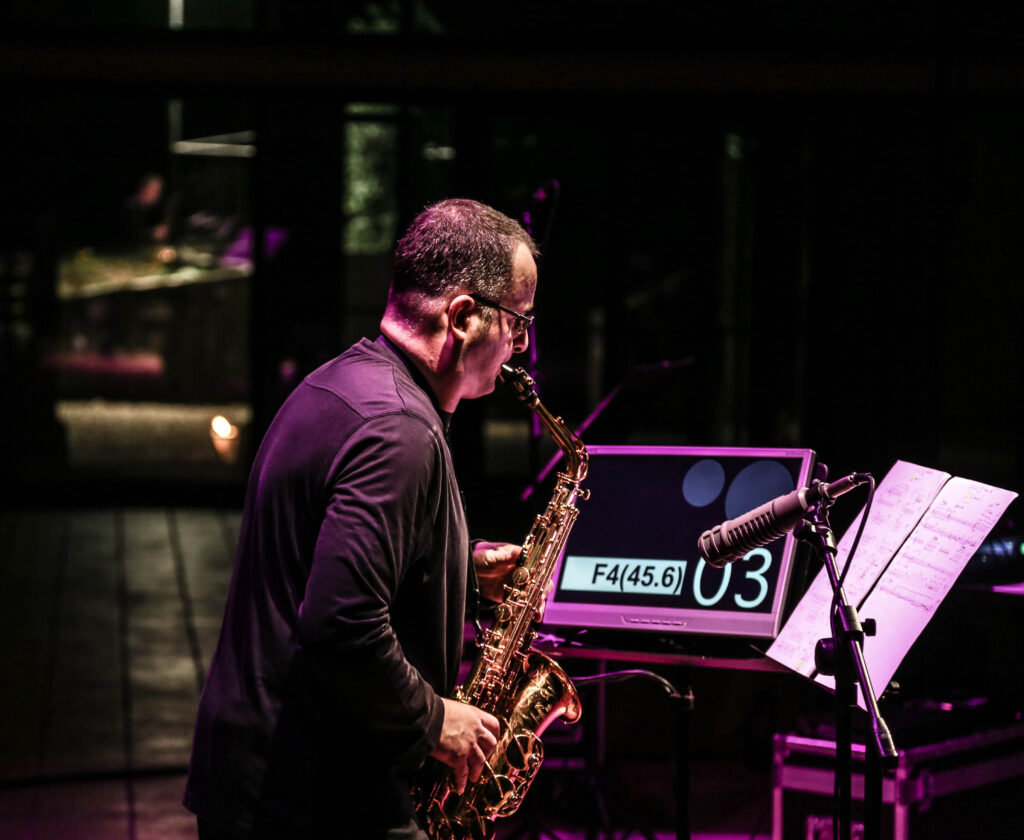
The sound of Giovanni Nardi's saxophone is high, confident and earthshaking, but it can also become sweet and luminous, and like the aurora borealis it offers a wide range of unpredictable nuances as it alternates between whispers and an overpowering, free emotional power
IL CORRIERE DI FIRENZE
A soprano sax magnificently played by Giovanni Nardi
LA NAZIONE
An inspired and faultless performance
IL RESTO DEL CARLINO
Giovanni Nardi, versatile, precise and unequalled even in less orthodox pieces for his instrument
LA NAZIONE
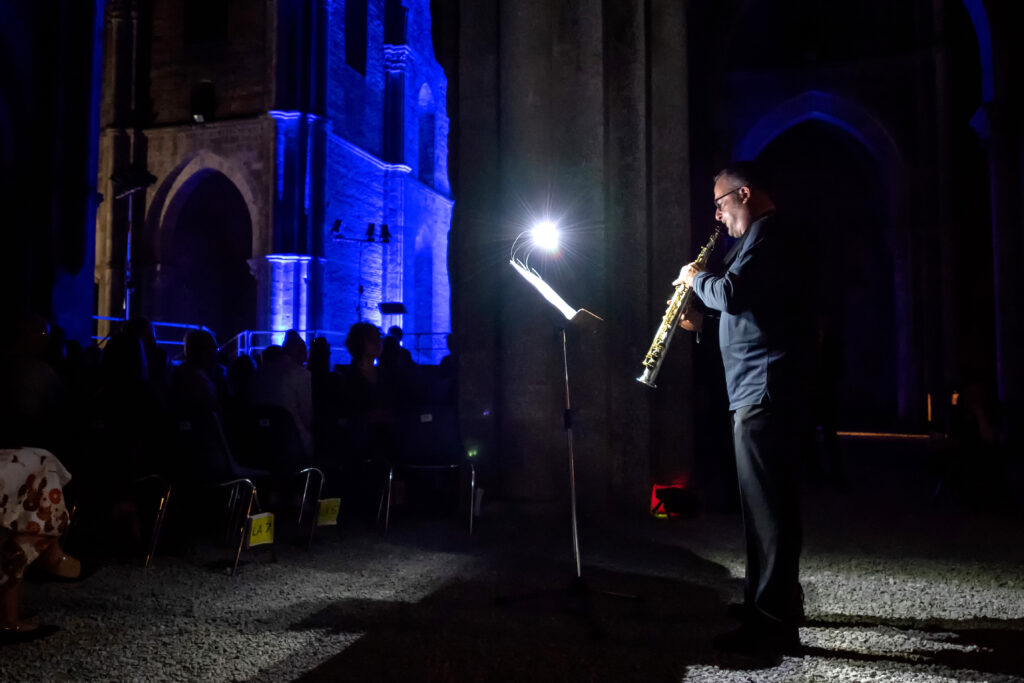
Copyright © 2022 Giovanni Nardi
Privacy Policy | Terms of use of the Site | Cookie Policy
Update cookie preferences
